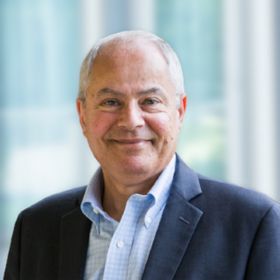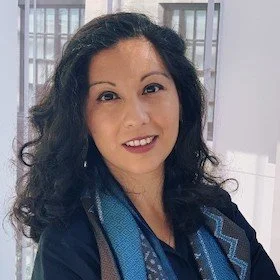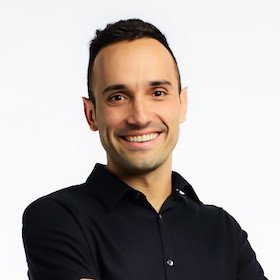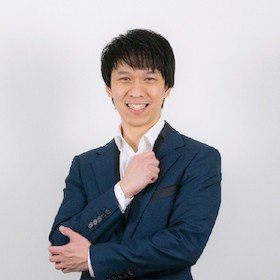Futures in Socially-Directed Science & Technology:
Sustainable Materials and Manufacturing
A cross-sector & cross-disciplinary virtual workshop
Sponsored by MIT-JWEL, MIT-DMSE, & Station1
Thursday, February 3rd, 2022 - 10am-11:30am ET, 12:30pm-2pm ET
This exciting cross-sector and cross-disciplinary virtual workshop and dialogue focused on “Futures of Socially-Directed Science and Technology: Sustainable Materials and Manufacturing” builds on the recently developed model of socially-directed science and technology. The objective of this workshop is to convene diverse professionals to share knowledge, methodologies, recent advances, and emerging directions and to dialogue and identify areas of opportunity for collaboration which lie at the intersection of science and technology with humanistic fields and the social sciences, toward more equitable and sustainable outcomes in materials and manufacturing development, production, commercialization, and deployment at scale. Discussions will focus on the productive intersection of social/environmental approaches and emergent technological areas such as additive manufacturing, computational materials, life cycle analysis, digital automation, and supply chain management. Each of these technical areas will be engaged through the following social perspectives: cognitive values and decision making, metrics and value, community engagement and impacts, thinking with long time (past to future) and the Anthropocene, and narrative and material culture. Participants will build shared perspectives and strategies through dialogue with leaders from industry (i.e. established and startup companies in the materials, manufacturing and related venture capital firms), accelerators and incubators, non-profit community-based organizations, government entities, academic research and education. Undergraduate and graduate students are especially welcome. This workshop will establish a foundation to continue to build upon relevant topics within a future seminar and dialogue series on Socially-directed Materials and Manufacturing: Invention and Innovation.
This workshop is sponsored by the MIT-JWEL (Cambridge, Massachusetts), the MIT Department of Materials Science and Engineering (Cambridge, Massachusetts) and Station1 (Lawrence, Massachusetts), and will be held in a fully virtual format.
This workshop is designed to be interactive and will have limited capacity. If interested in joining, please fill out the interest survey here. For more information please email: Thomas Rúa at: trua (at) mit (dot) edu.
AGENDA
Thursday, February 3rd, 2022 (10:00 - 11:30am ET & 12:30 - 2:00pm ET)
Welcome and Opening Remarks
Christine Ortiz, Morris Cohen Professor of Materials Science and Engineering, Massachusetts Institute of Technology and Founder, Station1
Topic: Sustainable Materials and Manufacturing in the Context of Socially-Directed Science and Technology
Ellan F. Spero, Historian of Science and Technology and Instructor, Massachusetts Institute of Technology and Co-founder and Professor of the Practice, Station1
Topic: Past, Present, Future: Historical Perspectives on Sustainable Materials and Manufacturing Within Sociotechnical Systems
Morning Session: Materials and Assemblages as Components of Future Sustainable Systems
February 3rd, 2022 (10-11:30am ET)
Daniel Render, Director - Sustainability, Expo 2020 Dubai and Global Technology Leader - Sustainable Program Management, Jacobs
Dina Storey, Director - Sustainability Operations, Expo 2020 Dubai
Topics: Holistic Approaches to Sustainability, Material Flows Metrics and Evaluation, Construction and Operation of Expo 2020 Dubai (The World's Fair/Expo is a global gathering of nations showcasing industrial, scientific, technological, and cultural contributions reflecting shared humanity and aspirational futures)
Nabil Nasr, CEO, REMADE (Reducing embodied energy and decreasing emissions) Institute. Associate Provost for Academic Affairs and Director, Golisano Institute for Sustainability, Rochester Institute of Technology
Topics: Design for Recovery, Reuse, Remanufacturing & Recycling (Re-X), Manufacturing Materials Optimization, Remanufacturing & End-of Life Reuse, Recycling & Recovery, Systems Analysis
Catherine de Wolf, Assistant Professor and Director of Circular Engineering for Architecture (CEA), ETH Zurich
Deepika Raghu, Ph.D. candidate and Chair of Circular Engineering for Architecture (CEA), ETH Zurich
Topics: Digital Innovation Towards a Circular Built Environment, Life Cycle Design, Materials Selection, Embodied Carbon, Sustainable Structural Engineering
Bryce Meredig, Founder & Chief Science Officer, Citrine Informatics, Adjunct Professor of Materials Science, Stanford University
Topics: Materials Informatics, Smart Materials Data Infrastructure and Artificial Intelligence, Opportunities for Advancing Sustainable Materials
Afternoon Session: Sociotechnical Perspectives on Sustainable Materials and Manufacturing Systems
February 3rd, 2022 (12:30 - 2:00pm ET)
The session consists of presentations by featured speakers followed by breakout discussions.
Jason Ludwig, Ph.D. candidate Science and Technology Studies Department, Cornell University
Topics: The Anthropocene, Black Studies and “blues epistemology,” Disaster Studies, Environmental and Social Justice, Integrative history, Science and Technology Studies (STS)
Jonathan Isaacson, Chairman and CEO, The Gem Group, Inc.
Topics: Manufacturing, Supply Chain Management, Community Engagement, Sustainability and Corporate Leadership
Katia Zolotovsky, Assistant Professor, Rhode Island School of Design
Topics: Synthetic Biology, Computational Design, Living Materials in Advancing Sustainable Innovation
Steffen Reichert, Professor for Digital Design & Future Making, Pforzheim University of Applied Sciences
Topics: Digital Design and Future Making, New Manufacturing Technologies for Overcoming Social and Ecological Challenges
Sponsors
The Massachusetts Institute of Technology (MIT) is a research university founded in 1861 and based in Cambridge, Massachusetts. MIT is dedicated to advancing knowledge and educating students in science, technology, and other areas of scholarship that will best serve the nation and the world in the 21st century. The Institute has more than 900 faculty and 10,000 undergraduate and graduate students.
MIT J-WEL is an initiative of MIT and Community Jameel, the Abdul Latif Jameel World Education Lab (J-WEL) and works with member organizations to promote excellence and transformation in education at MIT and worldwide. MIT J-WEL engages educators, technologists, policymakers, societal leaders, employers, and employees through online and in-person collaborations, workshops, research, and information-sharing events. J-WEL member organizations work with MIT faculty and staff to address global opportunities for scalable change in education
MIT DMSE, the MIT Department of Materials Science and Engineering, is home to the world’s premier program focused on Materials Science and Engineering – the study of matter and how it is made. The MIT DMSE community members undertake interdisciplinary materials projects that draw on fundamental sciences in pursuit of beneficial engineering solutions. From construction materials to virus-grown nanostructures, we seek to understand the creation, composition, structure, properties, and performance of materials – and to derive new, effective, and sustainable alternatives. In MIT DMSE, current and future leaders in the field expand knowledge through experiments and projects that link diverse scientific disciplines. From novel manufacturing methods to high-capacity batteries, their work has resulted in powerful discoveries and innovations that positively influence virtually every corner of society.
Station1 is a new nonprofit higher education institution, founded by researchers from the Massachusetts Institute of Technology in 2016, that is paving a pathway of opportunity through a new model of learning and research - socially-directed science and technology. This model integrates science and technology with humanistic fields and the social sciences in order to interrogate, understand, and shape technologically-driven societal impact towards more equitable, just, ethical, and sustainable outcomes. Core to the Station1 model is broadening access and opportunity for students of color, those from low-income households, and those who are first-generation to college. To advance this mission, Station1 designs and delivers transformative education, research, innovation, and collective impact programs and initiatives employing unique hybrid methods powered by leading and emerging digital infrastructure. Station1 collaborates with partners worldwide, including socially-minded startup companies, established industry, the social and public sectors, and academia. Current areas of focus include socioresilient technologies, materials, and infrastructure, community-based participatory research approaches to biotechnology, technologically-driven approaches to the study of humanistic topics, and inclusive innovation ecosystems.
Workshop Organizers
Christine Ortiz, Morris Cohen Professor of Materials Science and Engineering, Massachusetts Institute of Technology and Founder, Station1
Ellan F. Spero, Historian of Science and Technology and Instructor, Massachusetts Institute of Technology and Co-founder and Professor of the Practice, Station1
Workshop Contributors and Collaborators
Francisco Martin-Martinez, Lecturer at Swansea University, Director of the Laboratory for Bioinspired Biobased Nanomaterials, Research Affiliate at MIT, and Instructor, , Station1
Jingjie Yeo, Assistant Professor, Cornell University Sibley School of Mechanical and Aerospace Engineering, Head of the J2 Lab for Engineering Living Materials and Instructor, Station1
Research Assistant and Workshop Coordinator
Thomas Rúa, Electrical Engineering and Computer Science Undergraduate, Middlesex Community College, 2021 Station1 Frontiers Fellowship Alumni
















